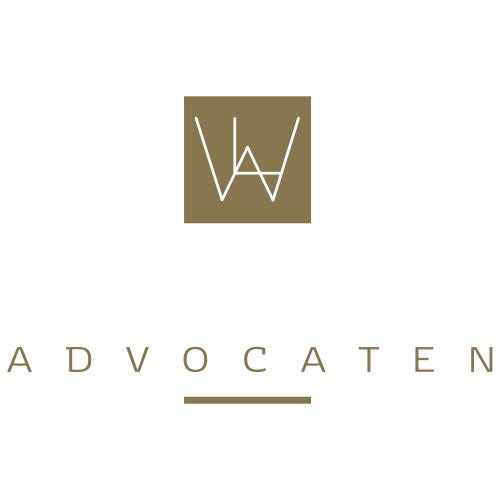Best ADR Mediation & Arbitration Lawyers in Bergen op Zoom
Share your needs with us, get contacted by law firms.
Free. Takes 2 min.
List of the best lawyers in Bergen op Zoom, Netherlands
About ADR Mediation & Arbitration Law in Bergen op Zoom, Netherlands
Alternative Dispute Resolution (ADR), including mediation and arbitration, is an increasingly popular method of resolving legal conflicts outside of traditional court proceedings in the Netherlands. In Bergen op Zoom, ADR allows parties to settle disputes efficiently, cost-effectively, and confidentially. Mediation involves a neutral third party who helps the disputing sides reach a voluntary agreement, while arbitration refers to a process where an arbitrator issues a binding decision after hearing both sides. Both methods are widely used for business disputes, family matters, and civil cases in Bergen op Zoom.
Why You May Need a Lawyer
Engaging a lawyer with expertise in ADR mediation and arbitration can offer key advantages in Bergen op Zoom, especially if:
- You are involved in a business dispute and prefer to keep negotiations out of the courtroom.
- You are dealing with a contract disagreement involving commercial or private parties.
- You need guidance preparing for a mediation or arbitration session.
- You want to ensure your rights and interests are protected during an ADR process.
- You wish to draft or review contracts that include mediation or arbitration clauses.
- You need help enforcing or contesting an arbitral award or mediated agreement.
- You require advice when ADR becomes mandatory before court proceedings.
Local Laws Overview
ADR in Bergen op Zoom is governed by Dutch national legislation, including the Dutch Civil Code and The Dutch Arbitration Act (Rijkswet op het arbitragerecht). The Netherlands strongly encourages ADR, and courts may require parties to attempt mediation before accepting certain cases. Arbitration clauses are common in commercial contracts, and mediated agreements can often be formalized as binding contracts. The procedure for both mediation and arbitration is regulated, and recognized institutions operate locally and nationally to oversee fair practices. It is important to note that there are clear rules about the enforcement of arbitral awards and mediated agreements under Dutch law.
Frequently Asked Questions
What is the difference between mediation and arbitration?
Mediation is a voluntary process where a neutral facilitator helps the parties find a mutually acceptable solution, but any agreement reached is only binding if both parties agree. Arbitration is more formal, resulting in a binding decision issued by one or more arbitrators after hearing arguments and evidence from both sides.
When should I consider ADR instead of going to court?
Consider ADR when privacy, speed, or cost efficiency is important, or when you seek to preserve a business or personal relationship. ADR is also worth considering when you have a contractual obligation to do so before litigating.
Is an agreement reached in mediation legally binding?
A mediation agreement can be made legally binding if both parties consent and the agreement is properly documented and signed. In some cases, it can also be converted into a court order.
Can I bring a lawyer to a mediation or arbitration session?
Yes, parties are allowed and often encouraged to be accompanied by legal counsel during both mediation and arbitration proceedings to ensure their rights are protected.
How is an arbitrator chosen in Bergen op Zoom?
Arbitrators are usually chosen based on agreement between the parties, or appointed by a recognized arbitration institution or, in some cases, by a court if the parties cannot agree.
Can an arbitration decision be appealed?
Arbitration awards in the Netherlands are binding and generally cannot be appealed, except in rare cases of procedural errors or violations of public order.
What types of disputes are commonly resolved through ADR?
ADR is commonly used for commercial disputes, employment matters, real estate issues, family law conflicts, and tenancy disputes.
Are ADR proceedings confidential?
Yes, both mediation and arbitration are confidential processes. This confidentiality is one of the main advantages of using ADR.
What if the other party refuses to participate in mediation or arbitration?
Unless there is a pre-existing obligation, such as a contractual clause, participation in ADR is usually voluntary. However, courts may sometimes order parties to attempt mediation before litigation proceeds.
How do I enforce an agreement or award from ADR?
Mediation agreements can be enforced as contracts or converted into court orders. Arbitration awards can be enforced through the Dutch courts, which have recognized mechanisms for doing so.
Additional Resources
For individuals seeking assistance with ADR mediation and arbitration in Bergen op Zoom, the following organizations and resources can be valuable:
- The Netherlands Mediation Institute (Nederlands Mediation Instituut) - sets standards and maintains a register of certified mediators.
- The Dutch Arbitration Institute (Nederlands Arbitrage Instituut) - provides arbitration services and appoints arbitrators for disputes.
- Juridsch Loket - offers free general legal information and advice throughout the Netherlands.
- Local bar associations (Orde van Advocaten) in Zeeland-West-Brabant region - for finding specialized ADR lawyers.
- The Dutch judiciary (Rechtspraak) - provides information on court-referred mediation procedures.
Next Steps
If you are considering ADR mediation or arbitration in Bergen op Zoom, begin by clearly defining your dispute and gathering relevant documents. Consult with a specialized ADR lawyer to assess your options, clarify your rights, and discuss possible strategies. Your lawyer can help you choose between mediation and arbitration, draft necessary documents, and represent your interests throughout the process. Additionally, you may reach out to recognized ADR institutions locally for further guidance. Acting promptly can help you resolve disputes more efficiently and with less stress than traditional litigation.
Lawzana helps you find the best lawyers and law firms in Bergen op Zoom through a curated and pre-screened list of qualified legal professionals. Our platform offers rankings and detailed profiles of attorneys and law firms, allowing you to compare based on practice areas, including ADR Mediation & Arbitration , experience, and client feedback.
Each profile includes a description of the firm's areas of practice, client reviews, team members and partners, year of establishment, spoken languages, office locations, contact information, social media presence, and any published articles or resources. Most firms on our platform speak English and are experienced in both local and international legal matters.
Get a quote from top-rated law firms in Bergen op Zoom, Netherlands — quickly, securely, and without unnecessary hassle.
Disclaimer:
The information provided on this page is for general informational purposes only and does not constitute legal advice. While we strive to ensure the accuracy and relevance of the content, legal information may change over time, and interpretations of the law can vary. You should always consult with a qualified legal professional for advice specific to your situation.
We disclaim all liability for actions taken or not taken based on the content of this page. If you believe any information is incorrect or outdated, please contact us, and we will review and update it where appropriate.











